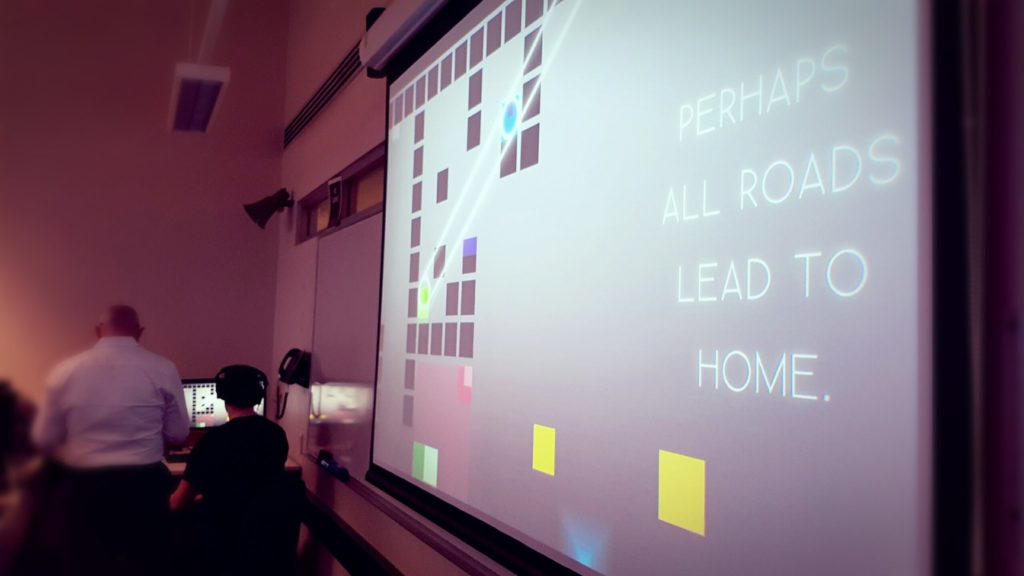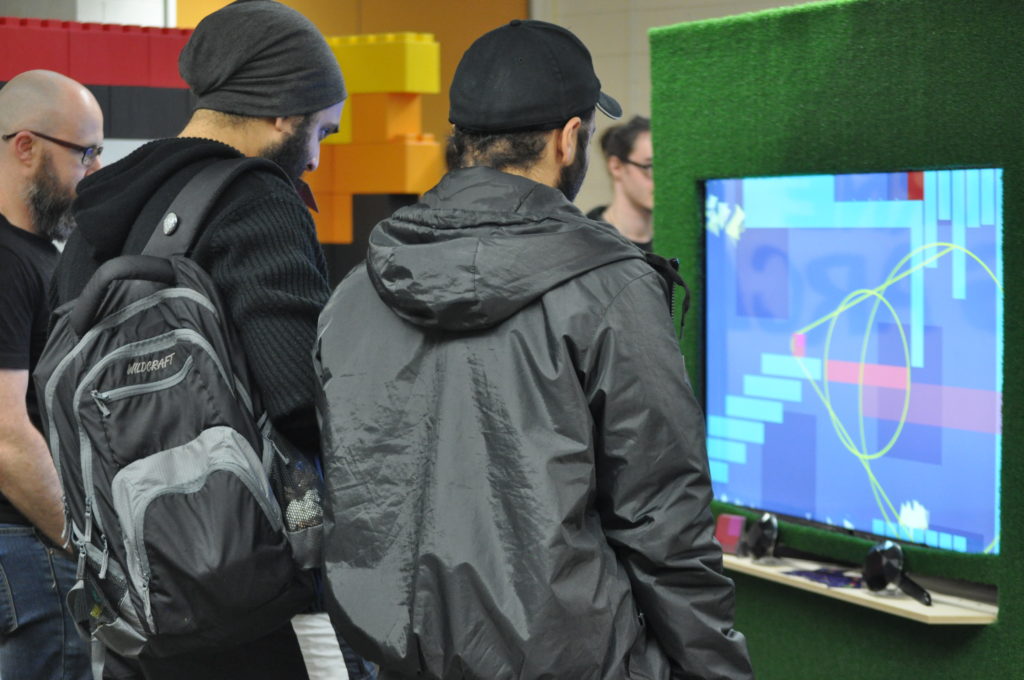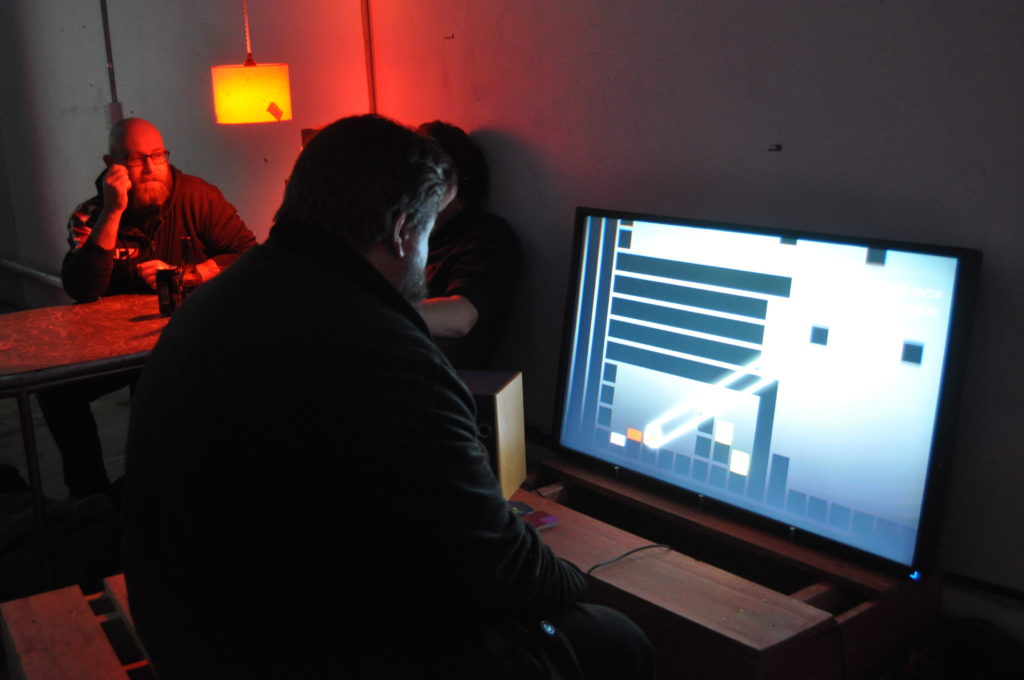We held another playtesting session this week. This time it was with our fellow game development students in our regular class time.

Now I would be hoping by this stage that we would be old hands at playtesting and that the whole session went without any problems. Unfortunately, this is not the case, and there a few persistent problems coming up that will need to be addressed.
It is true that we have had a number of playtesting sessions so far. We have made public playtests a focus of our semester planning and planned for a few more sessions before we get to PAX.
We have gotten better at being ready for the session, having everything in place and making sure our controllers and sound all work and that our build is stable. We also record a lot of data from our play testing sessions and feed that data back into our development to improve our game.
However, on the downside, almost all of our playtest sessions have been preceded by a very late night session of development the night before. This has resulted in our being able to show a better product on the day of the test, but I don’t think that this practice is sustainable, and it’s probably only a matter of time before it causes a disaster.

There are two mistakes being made that are causing our late night sessions, I believe:
- We are not setting a date at which changes will stop being made to the game.
- We are not carrying out sufficient Quality Assurance at an early enough stage.
On all of our public play tests to date we have identified major game breaking bugs on the day before the playtest.
In an attempt to address these shortfalls, we have put in place a week long lead time for each of our upcoming play tests.
At a point at least seven days before the test we will all agree what we are aiming to have in that build. The next three days will be dedicated to building and implementing new features.
Then four days out from the test, we declare the build locked and enter the QA phase. This will be in-house testing to ensure that all of the changes are working as expected and that there have been no strange bugs introduced.
The only changes that will be taking place during this phase are to directly address any issues that have been identified by QA.
The primary goal of this new playtest strategy is to ensure we have no more 2AM development sessions immediately before playtests. And above that, it’s to ensure that we have stable and well-tested builds ready to show to the public so that we know that the feedback we will gather from playtests will relate to them playing the game, rather than getting stuck or having stop due to a game breaking bug.

We’ll be taking along a new build to test at the next IGDA Melbourne meet up on Tuesday 12 September, so this gives us an immediate chance to test out our new strategy! So if you’re going to be at IGDAM, look for Level Squared, and come and say hello (I’ll be the one with the notebook).